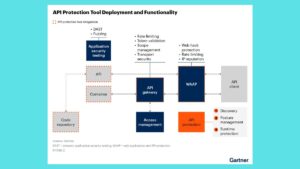HR Tech for Small Businesses: Maximizing Results with Limited Resources


In today’s competitive landscape, small businesses often face challenges in managing human resources effectively due to limited budgets and resources. However, leveraging HR technology (HR Tech) can significantly streamline operations, improve employee engagement, and ensure compliance with regulatory requirements. This blog explores how small businesses can harness HR Tech to achieve these goals and more.
Understanding HR Tech for Small Businesses
1. Recruitment and Applicant Tracking Systems (ATS)
Small businesses can benefit from ATS to streamline recruitment processes, manage job postings, and track applicants efficiently. Platforms like Zoho Recruit and BambooHR offer user-friendly interfaces and customizable features tailored for small business needs.
2. Employee Onboarding and Management
HR Tech simplifies onboarding processes by automating paperwork, employee training, and setting up payroll. Tools such as Gusto and Paychex Flex provide comprehensive solutions for payroll management, benefits administration, and compliance tracking.
3. Performance Management and Feedback
Implementing performance management software like PerformancePro or Small Improvements helps small businesses set goals, track employee performance, and provide timely feedback. These tools enhance transparency and accountability within teams.
4. Employee Engagement and Communication
Platforms like Slack and Microsoft Teams facilitate real-time communication and collaboration among team members, boosting employee engagement and productivity. Integrating these tools with HR systems ensures seamless information flow.
5. Learning and Development
Small businesses can foster employee growth and skill development through learning management systems (LMS) like TalentLMS or Cornerstone OnDemand. These platforms offer online training modules, certifications, and progress tracking capabilities.
Benefits of HR Tech for Small Businesses
- Efficiency: Automating repetitive tasks reduces administrative burden and allows HR professionals to focus on strategic initiatives.
- Cost-Effectiveness: Cloud-based solutions eliminate the need for expensive hardware and maintenance costs associated with traditional HR systems.
- Compliance: HR Tech ensures businesses adhere to labor laws and regulatory requirements, minimizing legal risks.
- Employee Satisfaction: Enhancing communication, feedback, and development opportunities improves employee morale and retention rates.
Implementing HR Tech: Tips for Success
- Assess Your Needs: Identify specific HR challenges and goals to determine which technologies align best with your business objectives.
- Choose Scalable Solutions: Select flexible platforms that can grow with your business and adapt to changing needs over time.
- Provide Training: Ensure employees and managers are trained on using new HR Tech tools effectively to maximize adoption and benefits.
- Monitor and Adapt: Regularly review metrics and feedback to optimize usage and address any issues that arise.
Conclusion
HR Tech offers small businesses powerful tools to streamline operations, enhance employee engagement, and achieve strategic HR goals. By investing in the right technologies and implementing them effectively, small businesses can overcome resource constraints and compete effectively in the market. Embrace HR Tech to unlock efficiencies, foster a positive work environment, and drive growth in your organization.
Whether you’re streamlining recruitment processes or boosting employee development, integrating HR Tech into your small business strategy can pave the way for sustainable success in the digital age.







